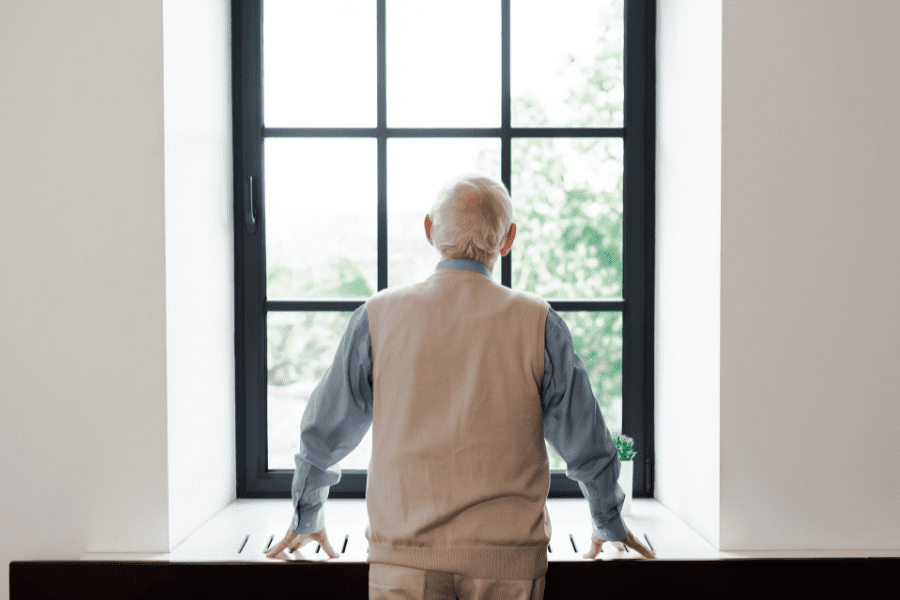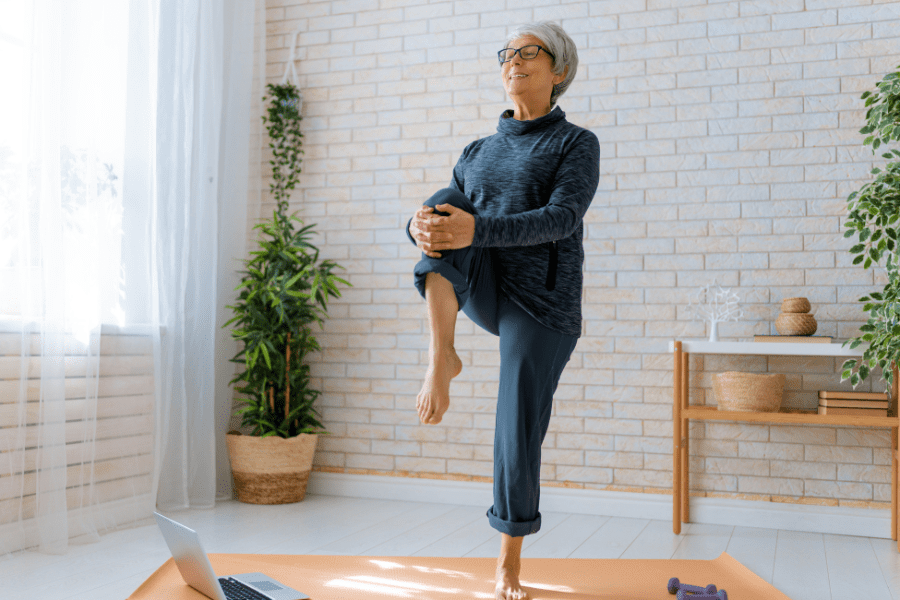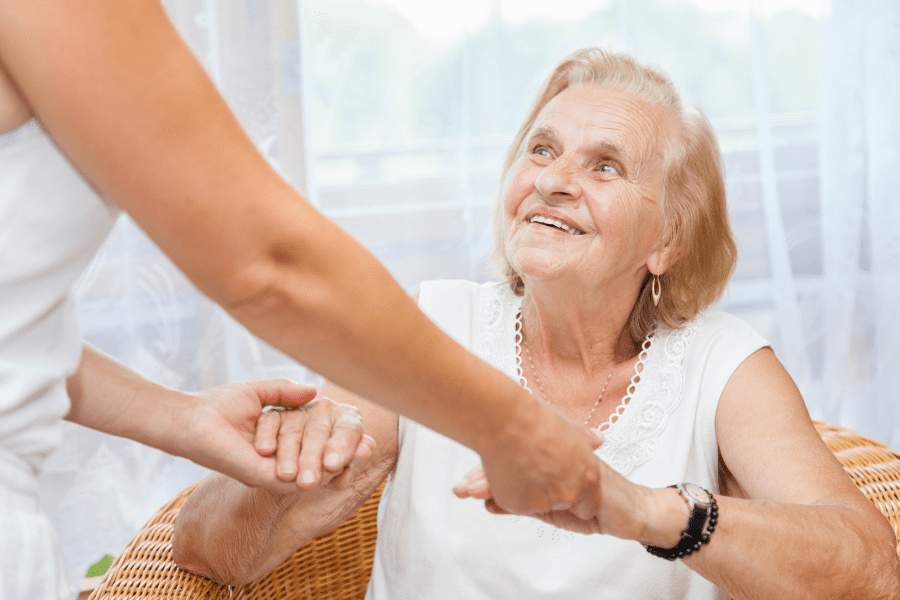In a world where it is increasingly common for people to live alone, especially the elderly, the challenge of combating loneliness and maintaining mental and physical well-being is even more important than ever. Age UK estimates that 2 million individuals over the age of 75 in England live alone. This represents a significant challenge for individuals, families, and society at large. Loneliness and social isolation have been linked to a range of health issues, including depression, anxiety, cardiovascular disease, and cognitive decline.
There are many factors that contribute to the rise in older adults living alone. These include changing family structures, urbanisation, and advances in healthcare that enable people to live longer with chronic conditions. However, it is important to recognise that living alone does not necessarily equate to loneliness or poor health outcomes. Many older adults who live alone maintain active social lives and enjoy good physical and mental health.
In this article, we explore how lifestyle adjustments, technology, and personal alarms can help older people living alone not only survive but thrive in their solitude.
Contents
-
- Ways to combat loneliness when living alone in older age
- Develop hobbies, interests, and a sense of purpose
- Establish and maintain a daily routine
- Prioritise physical and mental health
- Reach out to others and build connections
- Cultivate a comfortable and inviting living space
- Lifelong learning and personal growth
- Build a support system
- Use of modern technology for personal safety and connection
- Appreciate the benefits of solitude
- Conclusion
- Ways to combat loneliness when living alone in older age
Ways to combat loneliness when living alone in older age
There are many ways to combat loneliness and improve our sense of connection with others. In this response, I will outline some practical strategies for overcoming loneliness and building meaningful relationships with others.
1. Develop hobbies, interests, and a sense of purpose
Engaging in hobbies and pursuing interests is an excellent way to keep the mind active, maintain a sense of purpose, and combat feelings of isolation or loneliness. Living alone provides elderly ones the opportunity to explore interests without fear of judgement and offers ample time to dedicate to newfound passions. Is there something you regret not taking an interest in at school? Now is the perfect opportunity to make up for that time.
Involving others in hobbies, such as crafting, painting, baking, gardening, or joining a book club, can create a sense of camaraderie and foster social connections. Volunteering for local organisations or participating in community events can also provide a sense of purpose and belonging.
2. Establish and maintain a daily routine
Seniors can develop a good routine, which may not dispel feelings of loneliness, but it can distract you from them. Creating and maintaining a daily routine can provide structure, a sense of accomplishment, and a feeling of control over one’s life. Simple routines, like waking up and eating breakfast at the same time each day, can offer stability and focus.
Over time, incorporating hobbies, chores, and social activities into the routine can further enhance feelings of normalcy and purpose.
3. Prioritise physical and mental health
Living alone provides an opportunity to take care of your own health and well-being. Regular exercise, such as walking, swimming, or practising yoga, can improve physical health and provide a natural mood boost. Learning mindfulness techniques, meditation or keeping a journal can promote mental clarity and emotional well-being.
Maintaining a healthy diet is also essential for overall health. Cooking nutritious meals for oneself can be a therapeutic and rewarding activity, and sharing recipes or organising potlucks with friends can foster social connections.
4. Reach out to others and build connections
Living alone does not mean complete isolation. Taking advantage of daily opportunities to interact with others, such as neighbours, postal workers, or cashiers, can lead to meaningful connections. Focusing on the quality of interactions rather than the quantity can help reduce feelings of loneliness in older ages, which fosters a supportive network.
Seniors can utilise various communication methods, such as phone calls, text messages, video calls, or letter writing. This can help maintain connections with friends and family members, especially when face-to-face interactions are infrequent. When older people schedule regular check-ins with loved ones can provide something to look forward to and help establish a sense of routine.
For smartphone users looking to connect with their local community, the Nextdoor app is an excellent option worth exploring. Unlike Facebook, Nextdoor focuses on connecting users with their immediate neighbourhood groups, allowing for a more localised and private experience. The platform’s mission is to help users “connect to the neighbourhoods that matter to you so you can belong.”
Considering the importance of online safety, we recommend our readers to explore resources that offer tips for secure browsing and protecting personal information.
5. Cultivate a comfortable and inviting living space
Creating a living space that is comfortable and inviting can have a significant impact on one’s mental and emotional well-being. Personalising the environment with photos, artwork, and cherished items can make a home feel warm and welcoming. Adding plants, good lighting, and comfortable seating can also contribute to a pleasant atmosphere.
Ensuring and maintaining a tidy space can reduce stress and promote a sense of accomplishment.
6. Lifelong learning and personal growth
Living on your own offers the opportunity to invest in yourself through continuous learning and personal growth. Taking courses, workshops, or online classes, such as those offered by Coursera or Udemy can help individuals develop new skills and interests, and provide a sense of fulfilment.
Exploring intellectual pursuits, such as reading, learning a new language, or studying a specific subject, can keep the mind sharp and engaged. Challenging oneself to grow and evolve can lead to increased self-esteem and a greater sense of fulfilment.
7. Build a support system
Building a strong support system is critical for those living alone. This can include friends, family members, neighbours, or even professionals, such as therapists or support groups like those found on Meetup. Having a network of other senior individuals to rely on and share experiences with can alleviate feelings of loneliness and provide valuable emotional support.
Creating a support system may involve attending social events, joining clubs or groups, or simply reaching out to others in similar situations. Older people that are proactive in building connections and nurturing relationships significantly improve the experience of living alone.
8. Use of modern technology for personal safety and connection
One of the main concerns for seniors living alone is personal safety. Personal alarms from Telecare24 provide a sense of security, because in the event of an emergency, help is just a push of a button away. These devices allow individuals to maintain their independence while having the peace of mind that help is nearby if needed.
In addition to personal alarms, technologies like Skype, Zoom, and other video calling platforms can help bridge the distance between family members and friends. Regular video chats with loved ones can provide a much-needed sense of connection and brighten one’s day. Furthermore, social media and online forums can offer an opportunity to engage with like-minded individuals, form virtual communities, and create lasting friendships.
9. Appreciate the benefits of solitude
By embracing the advice above, older ones who live alone can use the opportunity for growth, self-discovery, and personal fulfilment. Recognising the advantages of solitude and practising gratitude can help shift perspectives and improve overall well-being.
Seniors that learn to enjoy one’s own company and appreciating the freedom and autonomy that come with living alone can lead to a richer and more satisfying life. Regularly reflecting on the positive aspects of solitude can help cultivate a sense of gratitude and contentment.
Conclusion
Living alone does not have to mean loneliness. It is important to remember that the feeling of loneliness in elderly is not an expression of personal failure or inadequacy, but rather a natural human emotion. Through the use of modern technology, conscious lifestyle choices, and a focus on personal growth, each individual can live a fulfilling and well-rounded life in solitude. With the right attitude and support, living alone can be a positive and empowering experience. To learn more about personal alarms and how they can support independent living, request a free information packet from Telecare24.
Thank you for taking time to read this article. If you found this information helpful, please feel free to share it with your family and friends. To read additional articles like this, please visit our blogs.











